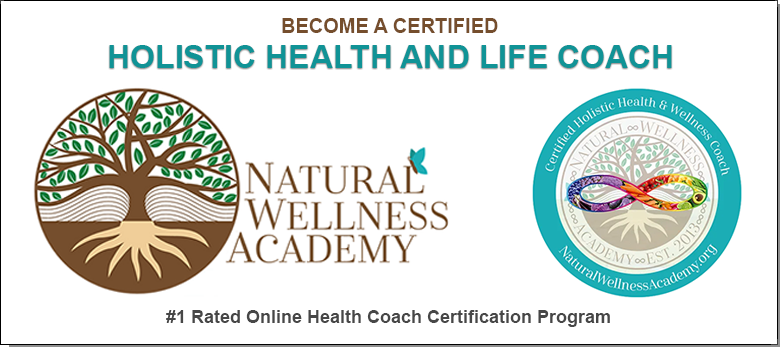
In today’s fast-paced world, mental health challenges are becoming increasingly common. While traditional methods of treatment remain important, there is a growing recognition of the benefits of holistic approaches. Holistic health emphasizes the interconnectedness of mind, body, and spirit, providing a comprehensive pathway to well-being. Holistic coaching, in particular, has emerged as a vital tool in supporting mental health. This approach focuses on the whole person, fostering self-awareness, personal growth, and balanced living.
Understanding Holistic Coaching
Holistic coaching is an approach that considers the whole person in the pursuit of personal development and well-being. Unlike traditional coaching, which may focus on specific goals or areas of life, holistic coaching integrates various aspects of an individual’s life, recognizing the interconnectedness of mind, body, and spirit.
Definition of Holistic Coaching
Holistic coaching is a practice that emphasizes the importance of balance and integration across all areas of life. It seeks to help individuals achieve their fullest potential by addressing mental, physical, emotional, and spiritual dimensions. This approach is grounded in the belief that true well-being arises from a harmonious relationship between these aspects.
Key Principles of Holistic Coaching
Holistic coaching is built upon several foundational principles that guide its practice and distinguish it from other coaching methods.
Mind-Body-Spirit Connection
The mind-body-spirit connection is a central tenet of holistic coaching. This principle acknowledges that mental health is deeply intertwined with physical and spiritual health. By addressing all three areas, holistic coaching promotes comprehensive well-being.
Individualized Approach
Each person is unique, with their own set of experiences, strengths, and challenges. Holistic coaching respects this individuality by creating personalized plans that cater to specific needs and goals. This tailored approach ensures that coaching is relevant and effective for each individual.
Emphasis on Self-Awareness and Personal Growth
Self-awareness is a key component of holistic coaching. By fostering a deep understanding of oneself, individuals can identify areas for growth and development. Holistic coaching encourages continuous personal growth, helping individuals evolve and thrive in all aspects of their lives.
Comparison with Traditional Mental Health Approaches
While traditional mental health approaches often focus on treating specific symptoms or disorders, holistic coaching takes a broader perspective. Traditional methods might concentrate on cognitive or behavioral techniques to manage mental health issues. In contrast, holistic coaching integrates these techniques with practices that support physical health, emotional well-being, and spiritual growth.
Holistic coaching also emphasizes proactive and preventive measures, encouraging individuals to adopt healthy lifestyle habits that promote overall well-being. This approach not only addresses current mental health challenges but also helps prevent future issues by fostering a balanced and harmonious life [1].
The Impact of Holistic Coaching on Mental Health
Holistic coaching has a profound impact on mental health by addressing the interconnected aspects of an individual’s life. This approach not only helps manage mental health issues but also enhances overall well-being by fostering emotional, cognitive, physical, and spiritual growth.
Enhancing Emotional Well-Being
Emotional well-being is crucial for overall mental health. Holistic coaching provides various techniques to manage and improve emotional states.
Techniques for Managing Stress and Anxiety
Holistic coaching offers tools to manage stress and anxiety effectively. Practices such as mindfulness, breathing exercises, and relaxation techniques help individuals cope with daily stressors. These methods not only reduce immediate stress but also build long-term resilience against anxiety.
Building Emotional Resilience
Emotional resilience is the ability to recover from setbacks and adapt to challenging situations. Holistic coaching promotes this resilience by encouraging self-reflection, positive thinking, and emotional regulation strategies. Over time, these practices enhance an individual’s capacity to handle emotional challenges.
Improving Cognitive Functions
Cognitive health is essential for mental clarity and focus. Holistic coaching includes strategies to boost cognitive functions and maintain mental sharpness.
Strategies for Enhancing Focus and Clarity
Techniques such as meditation and cognitive exercises are integral to holistic coaching. These practices improve concentration, enhance memory, and promote mental clarity. Regular use of these techniques can lead to sustained cognitive improvements [2].
Promoting Positive Thinking Patterns
Holistic coaching encourages the development of positive thinking patterns. By identifying and reframing negative thoughts, individuals can cultivate a more optimistic outlook. This shift in perspective not only improves mental health but also enhances overall life satisfaction.
Supporting Physical Health
Physical health significantly influences mental well-being. Holistic coaching integrates physical health practices to support mental health.
Role of Nutrition and Exercise
Proper nutrition and regular exercise are vital components of holistic coaching. Balanced diets and physical activity routines contribute to better mental health by improving mood, energy levels, and cognitive function. Holistic coaches provide guidance on maintaining healthy lifestyles that support mental well-being.
Importance of Sleep and Relaxation Techniques
Quality sleep and relaxation are essential for mental health. Holistic coaching emphasizes the importance of sleep hygiene and relaxation practices, such as progressive muscle relaxation and guided imagery. These techniques help individuals achieve restorative sleep and reduce stress.
Fostering Spiritual Well-Being
Spiritual well-being is a critical aspect of holistic health. Holistic coaching includes practices that nurture the spirit and promote inner peace.
Meditation and Mindfulness Practices
Meditation and mindfulness are core elements of holistic coaching. These practices help individuals connect with their inner selves, reduce stress, and cultivate a sense of calm. Regular meditation can lead to profound improvements in mental health and spiritual well-being.
Connection to Inner Self and Purpose
Holistic coaching encourages individuals to explore their inner selves and discover their life purpose. This deeper understanding fosters a sense of fulfillment and direction, which positively impacts mental health. By aligning their actions with their values and goals, individuals can achieve a harmonious and balanced life.

Core Components of Holistic Coaching for Mental Health
Holistic coaching is a multifaceted approach that integrates various components to support mental health. Each component plays a vital role in helping individuals achieve balance and well-being. By understanding these core elements, we can appreciate how holistic coaching fosters mental health improvement.
Comprehensive Assessment and Goal Setting
A thorough assessment is the first step in holistic coaching. This process involves evaluating the individual’s current mental, physical, emotional, and spiritual state. The assessment helps identify strengths, challenges, and areas for growth. Based on this evaluation, personalized goals are set to guide the coaching process. These goals are specific, measurable, achievable, relevant, and time-bound (SMART), ensuring they are tailored to the individual’s unique needs and aspirations [3].
Personalized Coaching Plans
Once goals are established, holistic coaching involves creating personalized plans that cater to the individual’s specific needs. These plans are dynamic and adaptable, allowing for adjustments as progress is made.
Tailored Techniques and Interventions
Personalized coaching plans include a variety of techniques and interventions designed to address the individual’s unique challenges and goals. These may involve cognitive-behavioral strategies, mindfulness practices, nutritional guidance, and physical activity recommendations. The tailored approach ensures that the interventions are relevant and effective for the individual.
Monitoring and Adjusting Progress
Holistic coaching is an ongoing process that requires regular monitoring and adjustments. Coaches track the individual’s progress, providing feedback and making necessary changes to the coaching plan. This iterative process ensures that the individual continues to move towards their goals and achieve desired outcomes.
Integrative Techniques and Modalities
Holistic coaching incorporates a range of integrative techniques and modalities, each contributing to the overall well-being of the individual. These techniques address different aspects of mental health and are combined to create a comprehensive approach.
Cognitive-Behavioral Strategies
Cognitive-behavioral strategies are central to holistic coaching. These techniques help individuals identify and change negative thought patterns and behaviors that contribute to mental health issues. By promoting positive thinking and adaptive behaviors, cognitive-behavioral strategies support emotional resilience and mental clarity.
Mindfulness-Based Approaches
Mindfulness-based approaches are essential in holistic coaching. Practices such as meditation, deep breathing exercises, and mindful awareness help individuals stay present and manage stress. These techniques enhance emotional regulation, reduce anxiety, and promote a sense of calm and balance.
Nutritional Guidance
Nutrition plays a crucial role in mental health. Holistic coaching includes guidance on maintaining a balanced diet that supports brain function and emotional well-being. Nutritional interventions may involve dietary adjustments, supplementation, and education on the impact of food choices on mental health.
Physical Activity and Movement Therapies
Regular physical activity is vital for mental and physical health. Holistic coaching encourages incorporating movement therapies, such as yoga, tai chi, and aerobic exercises, into daily routines. These activities improve mood, boost energy levels, and enhance overall well-being.
Benefits of Holistic Coaching in Mental Health
Holistic coaching offers numerous benefits for mental health by addressing the whole person. This approach not only helps individuals manage existing mental health issues but also promotes long-term well-being through comprehensive, integrative practices.
Long-Term Sustainability of Mental Health Improvements
One of the significant advantages of holistic coaching is its focus on sustainable mental health improvements. By addressing the root causes of mental health issues and promoting balanced living, holistic coaching helps individuals achieve lasting change. This approach encourages the development of healthy habits and lifestyle choices that support mental well-being over the long term, reducing the likelihood of relapses and fostering continuous personal growth [4].
Empowerment and Self-Efficacy
Holistic coaching empowers individuals by fostering a sense of self-efficacy. This approach encourages clients to take an active role in their mental health journey, equipping them with the tools and strategies needed to manage their well-being. By developing self-awareness and personal responsibility, individuals become more confident in their ability to handle life’s challenges and make positive changes, leading to greater overall resilience and self-empowerment.
Holistic Lifestyle Changes and Their Impact
Holistic coaching promotes holistic lifestyle changes that positively impact mental health. By integrating practices that support physical, emotional, and spiritual well-being, individuals experience comprehensive improvements in their overall quality of life.
Improved Physical Health
Holistic coaching encourages healthy eating, regular physical activity, and proper sleep, all of which contribute to better physical health. These improvements in physical health directly impact mental well-being, as a healthy body supports a healthy mind.
Enhanced Emotional Balance
By addressing emotional health through techniques such as mindfulness and emotional regulation strategies, holistic coaching helps individuals achieve greater emotional balance. This balance reduces stress, anxiety, and depression, leading to a more stable and positive emotional state.
Spiritual Growth
Holistic coaching also fosters spiritual growth, helping individuals connect with their inner selves and find purpose and meaning in life. This spiritual connection enhances overall well-being and provides a deeper sense of fulfillment and peace.
Prevention of Mental Health Relapses
A key benefit of holistic coaching is its preventive approach to mental health. By promoting a balanced and healthy lifestyle, holistic coaching helps individuals build resilience against future mental health issues. This preventive focus reduces the risk of mental health relapses, ensuring that individuals maintain their well-being over time. The holistic approach also equips individuals with the skills and strategies needed to recognize and address potential issues before they escalate, supporting ongoing mental health maintenance.
References
[1] Interventions to Support Integrated Psychological Care and Holistic Health Outcomes
[2] A Holistic Approach to Mental Health
[3] What Is Holistic Psychiatry?
[4] Holistic Approaches to Mental Health
